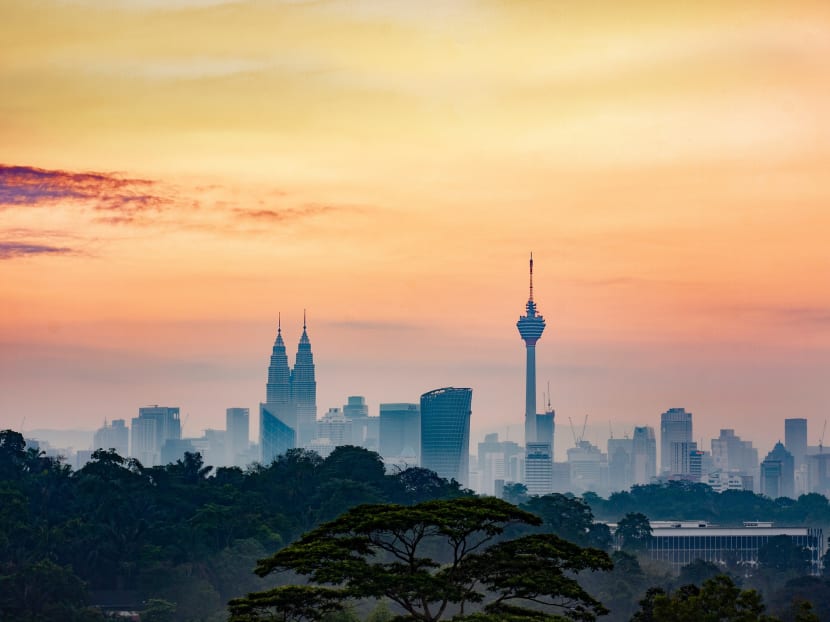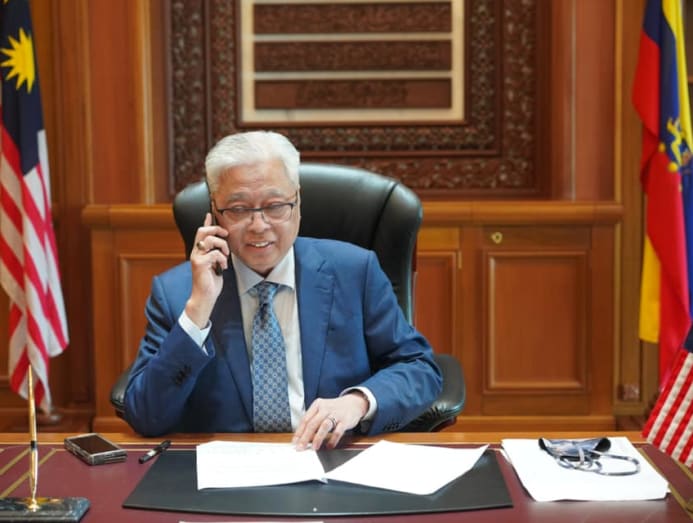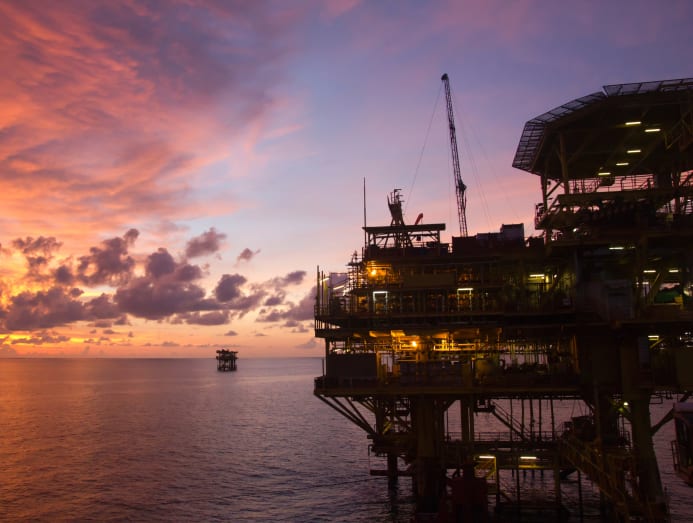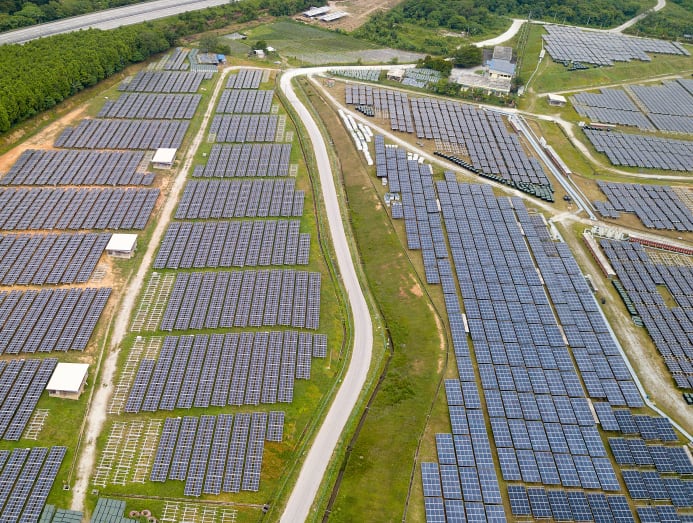Malaysia’s climate plan is high on ambition, but concerns linger over execution: Experts
Ad
Asia
Malaysia's climate plan is high on appetite, but concerns linger over execution: Experts

Malaysia is planning a radical greenish transformation under its 12th Malaysia Plan. (Photo: iStockl/Ngoc Vuong Van)
BANGKOK: When Malaysia enters negotiations at global climatic change talks first at the end of this month in Glasgow, it will be with momentum from a sweeping and aggressive national plan for a greener and cleaner future.
On newspaper, the 12th Malaysia Plan (12MP), tabled by Prime Minister Ismail Sabri Yaakob and passed in parliament on Thursday (Oct 7), is a bold argument with climate change mitigation featuring prominently. The land aims to be carbon neutral by 2050 at the primeval and overhaul its energy, transportation as well equally state use sectors.
Electric vehicles will boss the roads, renewable free energy will power the nation's cities, which will be moulded effectually green principles. Carbon pricing and carbon revenue enhancement schemes will come into effect and no new coal power plants volition be congenital, under the plan.
While there is optimism around the level of aspiration, there is also concern amid experts that a lack of particular and the limited capacity to implement complex policies could be hurdles to transformative climate action.
"Malaysia has never been short of long term strategic vision. Ambitious planning has not been an upshot at all in Malaysia," said Niloy Banerjee, United Nations Evolution Plan (UNDP) Resident Representative for Malaysia, Singapore and Brunei Darussalam.
"The challenge here has always been going from plan to work plan, implementation and addressing serious structural constraints on that implementation," he said.
Others said they had not expected Malaysia to pursue cyberspace naught and so soon, a policy that puts information technology amid the virtually aggressive countries on long-term climate strategy in Southeast Asia.
Indonesia aims to be carbon neutral by 2060 for example, Thailand even later, while Singapore wants to accomplish the target "as soon as viable" in the second half of the century.
"Actually, nosotros were very, very surprised. Considering nosotros had non heard most Malaysia thinking about carbon neutrality past 2050," said Meena Raman, president of Friends of the Earth, Malaysia.
"It'south giving signals for the next v years, just we don't have the details. We have non seen any roadmap. The devil will always exist in the details," she said.
Crucial aspects of the rollout of the 12MP are beingness established by the federal government. National policies centred on the surroundings, climatic change and biodiversity are still to exist updated, and details on a carbon pricing framework, fuel economy standards and incentives for renewable energy accept yet to be determined.

Banerjee said having a "north star'' to guide economy-wide reforms is useful, but the shallow details go out holes throughout important policy areas.
"The lack of details does make me cautious," said Darshan Joshi, an analyst for the Institute of Strategic and International Studies (ISIS) Malaysia.
"It is a holistic document that displays the government's understanding of all the steps that accept to exist taken in order for Malaysia to finer address climate change at the domestic level.
"Only until nosotros know the details of our policies, information technology is tough to appraise our truthful ambition," he said.
While the 12MP has lofty goals, the policy document Malaysia has submitted to the United nations Framework Convention on Climate Alter (UNFCCC) Secretariat does not currently reverberate the ambitious stance the prime government minister has espoused.
While the country has upgraded its Nationally Determined Contribution (NDC) pledge - submitted every five years as part of the Paris Agreement - the way it calculates its planned emissions reductions withal relies on a "mathematical quirk", Joshi said.
The NDC target is not absolute when it comes to cutting greenhouse gases, rather information technology calls for a 45 per cent reduction in emissions intensity against the country'south Gdp by 2030.
Greenhouse gas intensity is the ratio of a country'southward emission to the economical value information technology generates. It ways that Malaysia'south emissions could actually rise, depending on the growth of its economy.
"Ultimately, our goal collectively should be to halt the growth in total emissions, which is something our pledge does not necessitate," said Joshi.
At that place is "wriggle room" in the NDC, Banerjee said, while noting that UNDP would proceed to lobby for improvements.
"That'due south an ongoing conversation. Information technology's actually a question of convincing the leadership, particularly the surround ministry. That i is achievable - a more aggressive NDC that is in absolute terms non relative to something," he said.
"In Malaysia, conversations take time to gather momentum."
The 45 per cent target was a 10 per cent increment on Malaysia's previous NDC and is pledged unconditionally, pregnant it is not contingent on international back up or marketplace based mechanisms.
It was as well widened to include a greater range of damaging pollutants including methyl hydride, nitrous oxide and hydrofluorocarbons.
Nevertheless there are major challenges ahead this decade to even reach that goal, many of them centred on the rollout of clean energy infrastructure.

THE RENEWABLE Energy ROLLOUT
Malaysia'southward early on rollout of renewable energy has yet to gain the speed or depth of regional neighbours similar Vietnam and to a bottom extent Thailand.
Throughout 2020, of all the new chapters of renewable energy in the Asean region, only three per cent of it was installed in Malaysia, according to the ASEAN Centre for Energy (ACE).
The federal government plans to dramatically increase its clean assets. The electricity sector contributes about one tertiary of the country's unabridged carbon footprint, so information technology wants 31 per cent of its installed power capacity to exist renewable by 2025.
"Which on the surface seems like a rapid expansion of our ambitions. But there'southward a caveat – our previous targets didn't consider large-scale hydropower to be a form of renewable energy, owing to its various biological and ecological costs, only this target does," said Joshi of ISIS.
He added that by counting hydropower, the government has been able to instantly add together 14 per cent to its renewable energy quota, taking information technology to a current total of 24.6 per cent.
The vast bulk of the country, however - especially Peninsular Malaysia - continues to rely on fossil fuels, especially coal and natural gas.
With a pledge to non build new coal-fired power plants, gas will be prioritised equally a transition fuel, as coal plants are retired and until solar and wind tin come across Malaysia's ever increasing energy demands.
"We cannot modify everything overnight. Now, Malaysia is heavily dependent on coal. We are looking for renewable energy to exist dominant," said energy good Hoyyen Chan, a researcher at Invite Green Consultancy.
"For the transition menses I think natural gas volition play a very of import role. But nosotros accept to exist careful.
"We have to make sure that its role in replacing coal is all the same contributing to emissions reduction, otherwise there's no point," she said.
The COVID-nineteen pandemic has slowed downwardly the rollout of several renewable free energy projects, as global supply bondage were disrupted and free energy needs dropped.
"Looking at the vivid side, information technology actually gives us a moment of clarity and an opportunity to ramp upwardly renewable energy deployment to shift towards a greener economic system," said Beni Suryadi, project director of the Asean Climate change and Free energy Project at the ACE.
"The claiming is real. Particularly in the next four to five years when we are still facing the economic impact of the COVID-19 pandemic.
"The government needs to keep its approach to balance the iii elements in the energy trilemma - guarantee of free energy supply, affordability and sustainability," he said.
Japan has offered assistance with new technologies, including Carbon Capture, Utilisation, and Storage, while a major solar initiative is underway including a 1GW tender worth close to US$1 billion.
"Merely the constraint here is that it caps at 50 megawatts (per project). Some of the industry is looking for more than that," Chan said.
"All these things become a push, a force. The industry is ready to get green but if you put in limitations, you limit opportunity. The industry is fix to invest but there'due south nowhere for them to invest," she said.

POLITICAL PRESSURES
Malaysia has experienced a period of unstable politics, with shifting political coalitions and Ismail Sabri the third person to hold the meridian job since the last election.
It adds an extra layer to the already daunting task of overhauling multiple economical sectors, drafting new legislation and unpicking the opaque divisions of responsibilities held by both the federal and country governments, several of which overlap in important areas linked to climate change, similar country utilise, biodiversity, forestries and carbon offsets.
"They all come in this grayness zone of, is it federal or is it state? Who gets to lead? And it mirrors itself in the fiscal transactions between federal and land and what kind of incentives the federal authorities can put out," UNDP's Banerjee said.
Experts agree that existent climate change activeness is - at face value - agreed upon in principle by both sides. Merely the turbulence in parliament and disruption within ministries is affecting the ability to generate coherent long-term policies.
"I think political instability is a huge challenge and it impedes all sorts of policy planning and implementation," said Ili Nadiah Dzulfakar, the co-founder of Klima Activity Malaysia.
"In Malaysia, we love bombastic ideas about development and all these nice policy statements. But the implementation side is really weak. Then comes the monitoring and evaluation, and that's also problematic," she said.
"Nosotros need more than just targets. We demand to talk about systematic change and this target is not a people-driven solution. These pledges hide inequalities. That's what I'm scared of."
Global political force per unit area has not all the same been fully felt in Malaysia, according to Banerjee, but soon information technology will. This could be led past the European Matrimony, which is targeting palm oil, a major domestic manufacture, and planning a taxation authorities that volition place duties on products that are audited for their carbon footprint.
Malaysia, every bit part of a bloc of developing nations, is expected to continue pushing for more finance and assistance from the developed globe in order for information technology to maintain its climate pledges.
This falls under the principle of "common but differentiated responsibilities and respective capabilities" (CBDR), which dozens of countries subscribe to. Information technology acknowledges that some countries historically have played a bigger role in causing climatic change, while others accept limited resources to solve information technology.
Developed nations had pledged to jointly mobilise United states$100 billion every year to aid other nations with climate finance. Information technology volition be a key focus at the COP26 talks in Glasgow.
Overwhelmingly that target is non being met, although the U.s. has pledged US$11.4 billion a year by 2024 in public finance to developing countries to support climate activity.
"It's totally realistic and off-white," said Danny Alexander, vice president and corporate secretary of the Asian Infrastructure Investment Bank, well-nigh the developing globe'due south need to urgently tap climate finance.
"The financial resources are available and I think it's quite reasonable for developing countries to say, 'nosotros recognise this claiming, we want to play our part, we know we need to simply we demand the fiscal resources to be deployed to aid united states of america', and I call back those resources are definitely coming," he told CNA.
Indonesia is i state that is vocal nearly it only striving for net zippo if given outside support, but Malaysia's target, according to its updated NDC, "volition be achieved through domestic measures".
Given the country'due south fiscal challenges, it is a misguided strategy, according to Friends of the Earth's Raman.
"It sounds like Malaysia is on the same footing as the US or the UK. But actually that's not fair because I don't believe that the developed world should exist allowed to get away with bereft 2050 targets, and to continue to accept up the remaining carbon budget," she said.
Every bit the clock ticks, climate modify impacts are already being felt across Malaysia. Temperature rises in cities have been dramatic, flooding is increasingly damaging at the aforementioned time equally some regions suffer water shortages every bit rain becomes more desultory and inconsistent.
The 12MP will include more flood mitigation measures, fiscal policies to support woods conservation and a blue economic blueprint for coastal and marine areas, amid the threat of rising sea levels, according to the prime number minister.
"Overall, information technology'due south an ambitious aspiration. Nosotros cannot deny that." Chan said.
"To me, with this very clear policy direction, it'southward a bright motility. Whether nosotros'll be able to achieve information technology though, no one knows nigh that.
Recent Searches
Trending Topics
Source: https://cnalifestyle.channelnewsasia.com/asia/malaysia-carbon-neutrality-ambitious-concerns-execution-294636


0 Response to "Malaysia’s climate plan is high on ambition, but concerns linger over execution: Experts"
Post a Comment